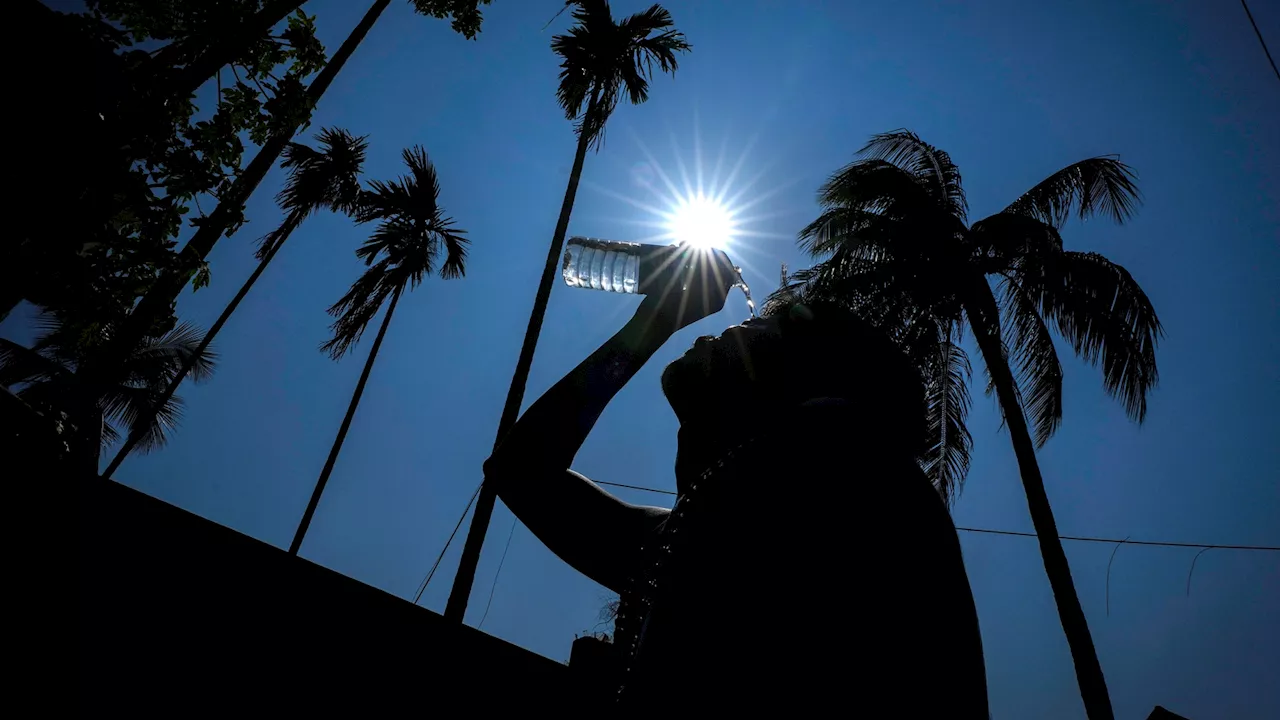Heat waves are getting hotter, more frequent and longer. But there are ways to keep yourself and your community cool.
It’s not just your imagination: heat waves are actually getting hotter. They’re also happening more often, lasting longer and starting earlier in the year.I’m Rachel Feltman. Today I’m talking to associate editor Andrea Thompson, who covers the environment, energy and earth sciences for. She’s here to tell us why we’re not likely to beat this heat anytime soon and to give us some tips on how we can keep each other safe—even on the most sweltering days.
We have seen really terrible heat in Mexico since the beginning of May. There were howler monkeys dropping out of trees from dehydration and heatstroke, birds having to be rescued and put into air-conditioning, obviously people being very affected. And we’ve started to see that more in the mainland U.S. now. There is a recent heat wave across the West, and now it’s hitting us in the East.
And we actually—when we’re doing stories and trying to find photos, it’s really hard to find photos that telegraph heat really well. And so that makes it really hard to sort of get people to understand what the problem is. And another problem is: we know the death toll from other extreme hazards pretty quickly—in the aftermath, generally—but heat, there can be a disconnect because it can take days, weeks, even months to know what the full death toll from a heat wave is.
From, like, a personal standpoint, when I’m trying to figure out what it’s going to be like, I look at the temperature, and I look at the dew point. And so the dew point is basically what the temperature would have to cool to to get 100 percent relative humidity—so to the point where you couldn’t have any more water vapor in the atmosphere. You don’t actually have to understand that to look at a dew point measure and know what it means.
If you feel like you’re thirsty, you’re already starting to push it. Being aware of some of the symptoms of heat illness—so dizziness, confusion. The problems with those are they can be hard to be aware of in yourself when you’ve—you’re past them, but they’re good to know of to help monitor other people, especially if you have family, friends, neighbors that are older, that if you have young children—you know, people in these high-risk categories.
You can do things like putting ice or cold cloths on your feet, hands, neck—that can help sort of cool you down—running a fan.Obviously cooling centers are great in places that have them, but is there any kind of broader effort going on to address heat?So there is, and that’s been a growing thing in a lot of places in the U.S. in recent years. So a number of cities and at least one state, Arizona, have a position for heat officer.
United Kingdom Latest News, United Kingdom Headlines
Similar News:You can also read news stories similar to this one that we have collected from other news sources.
 Heat stroke vs. heat exhaustion: Here are tips to stay safe in a heat waveHere are tips to stay safe from the heat.
Heat stroke vs. heat exhaustion: Here are tips to stay safe in a heat waveHere are tips to stay safe from the heat.
Read more »
 Heat stroke vs. heat exhaustion: Here are tips to stay safe in a heat waveHere are tips to stay safe from the heat.
Heat stroke vs. heat exhaustion: Here are tips to stay safe in a heat waveHere are tips to stay safe from the heat.
Read more »
 Heat stroke vs. heat exhaustion: Here are tips to stay safe in a heat waveHere are tips to stay safe from the heat.
Heat stroke vs. heat exhaustion: Here are tips to stay safe in a heat waveHere are tips to stay safe from the heat.
Read more »
 Heat stroke vs. heat exhaustion: Here are tips to stay safe in a heat waveHere are tips to stay safe from the heat.
Heat stroke vs. heat exhaustion: Here are tips to stay safe in a heat waveHere are tips to stay safe from the heat.
Read more »
 Heat stroke vs. heat exhaustion: Here are tips to stay safe in a heat waveHere are tips to stay safe from the heat.
Heat stroke vs. heat exhaustion: Here are tips to stay safe in a heat waveHere are tips to stay safe from the heat.
Read more »
 Heat stroke vs. heat exhaustion: Here are tips to stay safe in a heat waveHere are tips to stay safe from the heat.
Heat stroke vs. heat exhaustion: Here are tips to stay safe in a heat waveHere are tips to stay safe from the heat.
Read more »
